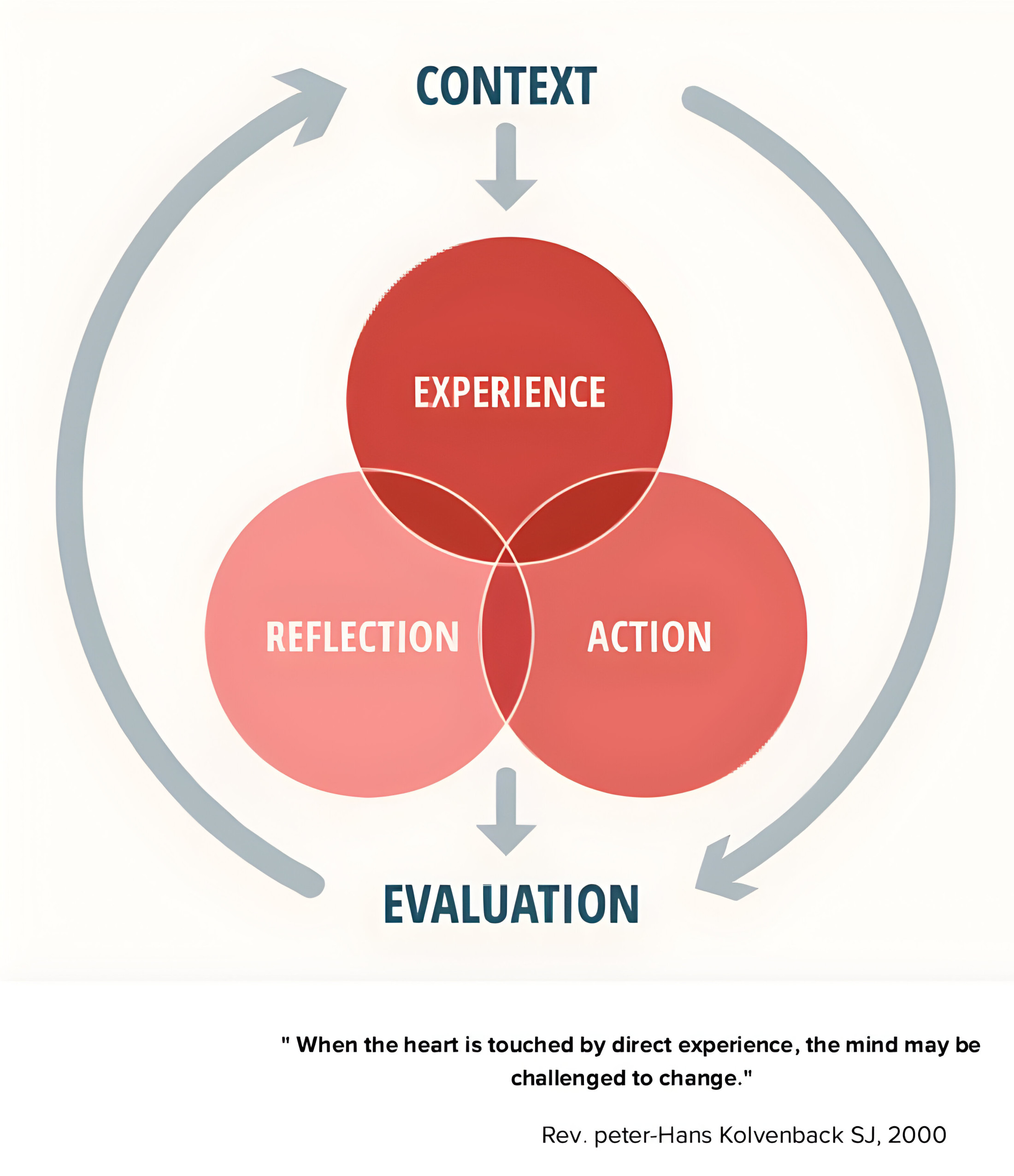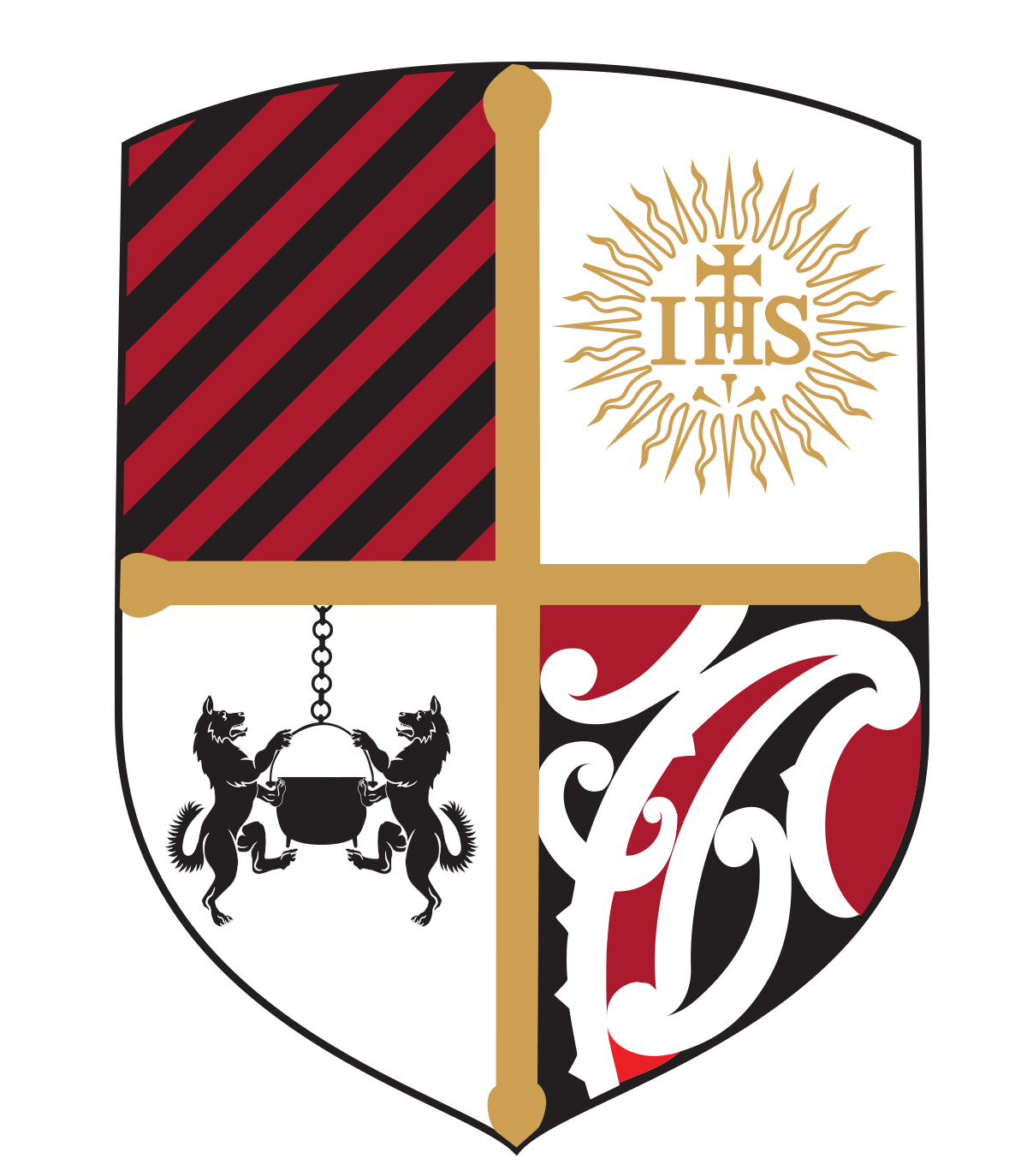We are a face-to-face community in which an authentic personal relationship between teachers and ākonga flourish. St Ignatius places the teacher’s personal example ahead of learning as a means to help ākonga grow in values. The teacher creates the conditions, lays the foundations and provides the opportunities for the continual interplay of the ākongas experience, reflection and action to occur. It is this continual interplay of experience, reflection and action lies at the heart of Ignatian pedagogy. It is our way of proceeding in our College as we accompany the learner on their personal journey of becoming fully human. Personal care and concern for the individual 'cura personalis' is a hallmark of Ignatian education and is central to our academic programme at St Ignatius.
Our IPP:
The Ignatian
Pedagogocal
Paradigm

CONTEXT
The context is the background of the framework behind the IPP. The teacher is aware of how influential context is on learning and knows well the multiple contexts in which ākonga live, grow up, and learn. The context guides how teachers specifically engage ākonga. Context is constantly evolving and therefore must be under on-going consideration.
EXPERIENCE
The teacher draws on the lived experience of the ākonga, seeking to draw out what they know, feel, and believe, and giving them new language and means of expression to refine and articulate their experience. The teacher also contributes his or her own experience without allowing it to lessen the value of an ākonga’s own experience. The experience itself is always broad, rich, cohesive and local showing true depth and a connection to the world around us.
REFLECTION
Is at the heart of the Ignatian model. It is about being attentive to experience and then building upon it, discovering new things, acquiring new knowledge and skills, deepening understanding, and adding detail and truth to the picture ākonga have of the universe, of human beings, and of themselves. With consistent, intentional and often guided opportunities for reflection on our learning, our relationships, our actions and context, we can deepen our learning and discover ever more occasions to lead truly extraordinary lives.
ACTION
In Ignatian education, learning leads to action. Teachers provide imaginative and engaging opportunities for ākonga to try out new skills, to use new knowledge, to exercise new ways of expressing themselves, their beliefs, values and questions. Through action, rooted in reflection on experience, ākonga begin to develop a truthful and coherent vision of the world and their place in it. Above all, they become ‘people for others’, agents of change who will, in ways big and small, make the world a better place. Striving to impact the greater good within our communities and society.
EVALUATION
The teacher reflects on the effectiveness of each lesson and evaluates ākonga progress in terms of growth in learning and living.
Evaluation is a continual practice and allows us to critique the impact of our experiences and actions. Evaluation allows us to lean in the direction of progress or magis (to be more, better or greater, for God, and not for ourselves).
